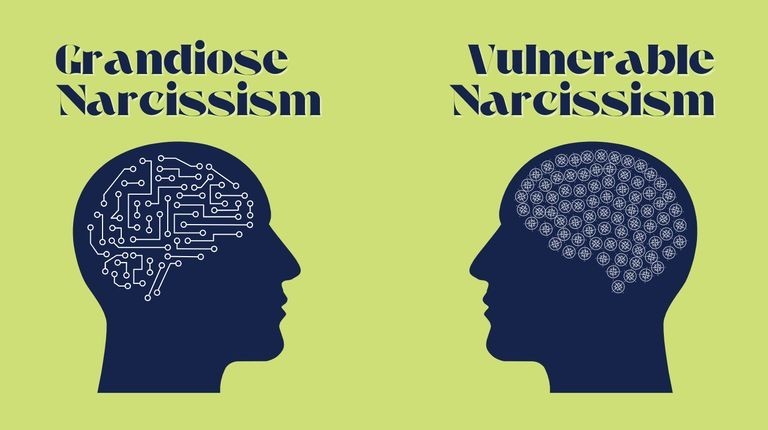
What is Narcissism?
Contrary to the original Greek narcissist, modern narcissists do not transform into flowers, but they tend to be just as self-centered as Narcissus himself. It is also important to differentiate between individuals with narcissistic tendencies and those with Narcissistic Personality Disorder (NPD).

Many people can be narcissistic, but that does not mean they all have NPD. It is a spectrum. NPD would be when an individual demonstrates an "extreme manifestation" of these narcissistic traits, as explained by developmental psychologist Eddie Brummelman. And there are clear indicators.
Narcissists vs. Psychopaths
Here is a key element to know: all psychopaths are narcissists, but the reverse is not necessarily true. It is easy to use these terms interchangeably, but they are distinct psychological disorders. An important difference?

Although narcissists can be unpleasant to others, they can still feel guilty and ashamed. Psychopaths, on the other hand, do not feel remorse about their actions. Interestingly, only 1% of the population meets the criteria to be diagnosed with narcissism. So, what are they?
Two types of narcissism
NPD can be divided into two subcategories, although not everyone agrees on this number. The two main groups are grandiose (overt) narcissism and vulnerable (covert) narcissism.

Grandiose narcissists are self-assured, assertive, and full of themselves, while vulnerable narcissists lean more towards defensiveness and sensitivity to criticism. And here are the signs that will help you identify them.
Sense of superiority
A word you will often hear when talking about narcissism is grandiosity. By definition, it is an immense sense of superiority that goes beyond self-confidence.

Grandiose narcissists believe they are the smartest, strongest, and best. They think they are always right about everything and expect everyone to worship them. Does this sound familiar?
Prone to daydreaming
Clearly, an inflated ego is not grounded in reality. It reflects the narcissist's inclination for fantasy, the illuminated dream they play out and believe to be real. And this is another criterion for diagnosis.

If someone you know constantly has their head in the clouds and believes they are powerful, successful, and even heroic, it could be a sign that they are a narcissist. And the more stressed these individuals are in real life, the more they retreat into their daydreaming world to cope with it all.
Unearned sense of entitlement
Grandiosity leads to another important criterion for NPD: an unwavering sense that everything is allowed. One could call it a god complex considering how much narcissists want everyone to bend over backward to fulfill their needs.

Pay attention to people who expect to receive everything they want, whenever they want it. Even if it's just constant compliments. They also tend to believe they have the right to treat others as they please and end up hurting people in their environment.
Need for reassurance
Next, let's talk about vulnerable narcissism or covert narcissism. Once again, this type of narcissist takes things too far, but this time by thinking they are the most unfortunate and unfairly treated individuals in the world.

These narcissists have a continuous need to be reassured by those around them. They constantly feel attacked and believe that the whole world should compensate them.
Fear of intimacy
Narcissists despise intimacy or vulnerability. And it is mainly because behind their facade, there may be an overwhelming lack of self-confidence. This shame and fear of being judged or humiliated are not something these individuals would want to share or acknowledge.

One of the reasons why a romantic relationship with a narcissist is very challenging is due to this lack of openness, despite the fact that they always expect you to fulfill all their emotional needs.
The Arrogant Attitude
Rather than showing vulnerability, some narcissists rely on an arrogant and often pretentious attitude. It's not just about superiority, but also to make those around them feel inferior.

They generally disdain others and treat them with disdain. And when they don't receive the respect they believe is their due, the likelihood of them responding negatively is very high.
Altruistic Behavior
They may be self-centered, but that doesn't mean narcissists are incapable of helping others. Some of them will dedicate themselves wholeheartedly to good deeds, sometimes with a disturbing level of intensity.

However, it is not necessarily for the benefit of others. It's more because narcissists want to portray themselves as selfless martyrs. The warning sign to watch out for? People who love to boast about their kindness and generosity.
Need for Admiration
The obsessive need to be adored is a prominent narcissistic trait. It's not enough that they see themselves as the chosen ones in this world; narcissists also need their entourage to constantly repeat it.

As psychotherapist Gina Moffa explains, "At the core, narcissists are uncertain and fragile humans who simply need to be loved and adored. It's a need that is much more pronounced than in the average individual, but the need itself is very real, pervasive, and damaging."
Extremely Charming
It can be difficult to identify if someone is a narcissist because, at first glance, they seem very charming. Have you ever met someone who showers you with compliments and buys you expensive gifts until you feel incredibly flattered?

You might even overlook the feeling that it's too much, too soon. Then, something changes: they become more manipulative. This is called "love bombing." It's how narcissists gain your attention.
Manipulative Tendencies
Once a narcissist has won you over with their love bombing, you'll suddenly discover changes. Perhaps they have gotten what they wanted from you. And now, you feel responsible for all the efforts that should be made in the relationship.

The fact is, many narcissists remain pleasant as long as they receive the validation they need. If that involves being manipulative, controlling, or even aggressive to keep you, so be it.
Excessively Jealous
Jealousy is another trait you will often see in someone with narcissism. As expected, they typically imagine that others are envious of them and all their alleged accomplishments.

But despite this, they are also prone to being jealous of others. They don't want their loved ones spending time with other people or paying attention to other things. Do you know someone who is extremely possessive? This is a red flag.
Lack of Empathy
One of the reasons narcissists struggle in romantic relationships is their low level (though not necessarily complete absence) of empathy. Empathy allows us to understand the emotions of others and helps us put ourselves in their shoes.

Narcissists, however, tend not to consider external perspectives. They expect their entourage to understand their feelings, but not the other way around. This is just a reminder that the narcissist sees themselves as the most important person in the world.
Poor Team Spirit
It's not possible to be part of a group and be successful without a good degree of communication, cooperation, and compromise, right? So it's not surprising that narcissists struggle when it comes to teamwork.

Someone who only considers their own feelings and disregards the needs of others is unlikely to make a good team player. And this applies whether we're talking about work, sports, or any other group activity.
Lack of Accountability
The absolute refusal to accept any responsibility is another clear sign that someone might be narcissistic. And of course, this can be very detrimental to a relationship.

Narcissists love to control everything, but they don't like being held accountable for the consequences. If something goes wrong, it's always someone else's fault. This allows them to maintain the illusion that they are perfect, but it also means they often blame their loved ones.
Perfectionism
Perfection is usually highly important to narcissists. They believe they themselves are perfect, and they expect everything to go perfectly for them. Therefore, their entourage and the situations they find themselves in are expected to follow this pattern.

Of course, this is an impossible task due to unrealistic demands. And it means that narcissists constantly face disappointment. Therapist Margalis Fjelstad states that narcissists feel "dissatisfied and unhappy most of the time."
Dominating Behavior
The need for perfection explains why narcissists want to control. This is also linked to their absolute sense of entitlement as they desire to be the ones who dictate the rules everyone must follow. Have you ever encountered individuals who seem to want to control what you say and do?

And if you go against what they want, they don't know how to react and may even unleash their anger on you. This behavior could indicate that you're dealing with a narcissist.
Occasionally Violent
When thinking of violent behavior associated with personality disorders, clichéd representations of sociopathy from Antisocial Personality Disorder may come to mind.

Studies suggest, however, that there is also a strong link between aggressive behavior and Narcissistic Personality Disorder (NPD), and this applies to both grandiose and vulnerable narcissists across all demographics. Individuals with narcissism can be easily provoked, and their response can be violent.
Constantly Feeling Threatened
If you know someone who constantly feels attacked, keep reading. Narcissists tend to interpret benign comments or facial expressions as threatening or as signs that you are no longer on their side.

Their ability to read body language is often weak, and they may immediately jump to the most negative possibility. With this attitude, it's no wonder they are frequently defensive or react with anger.
Refusing to Listen to Reason

Uncertainty
One detail that may not be obvious with narcissists is that their actions are often motivated by uncertainty and fear. They fear rejection, they fear being mocked, and they fear losing what they love.
Lack of self-awareness

Prone to depression

Of course, not all individuals prone to melancholic moods are narcissistic. However, when someone exhibits depressive symptoms, it is worth considering: has this person ever displayed narcissistic attitudes or behaviors?




















Comments
0 comment